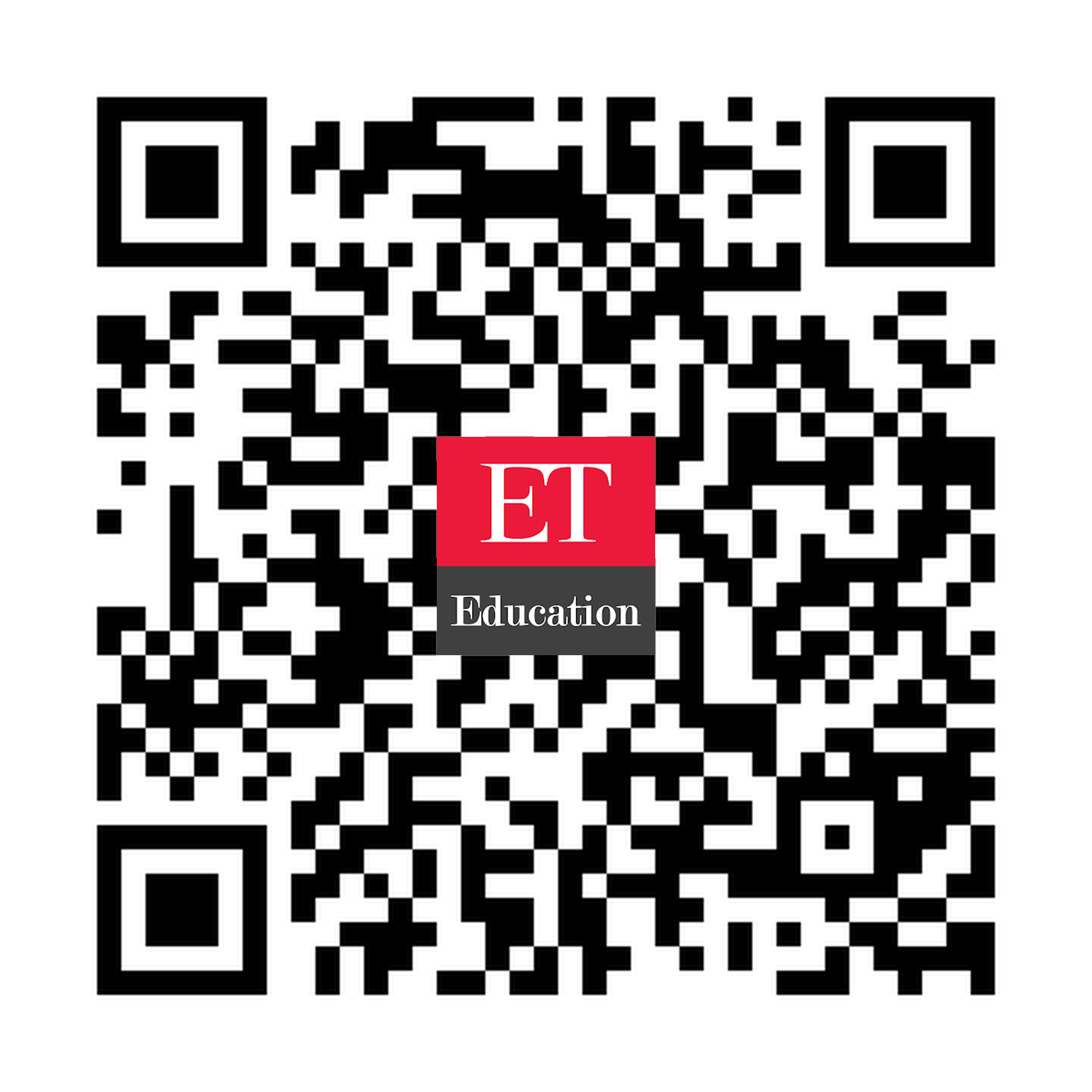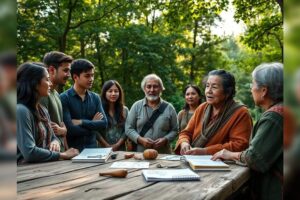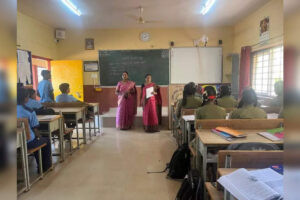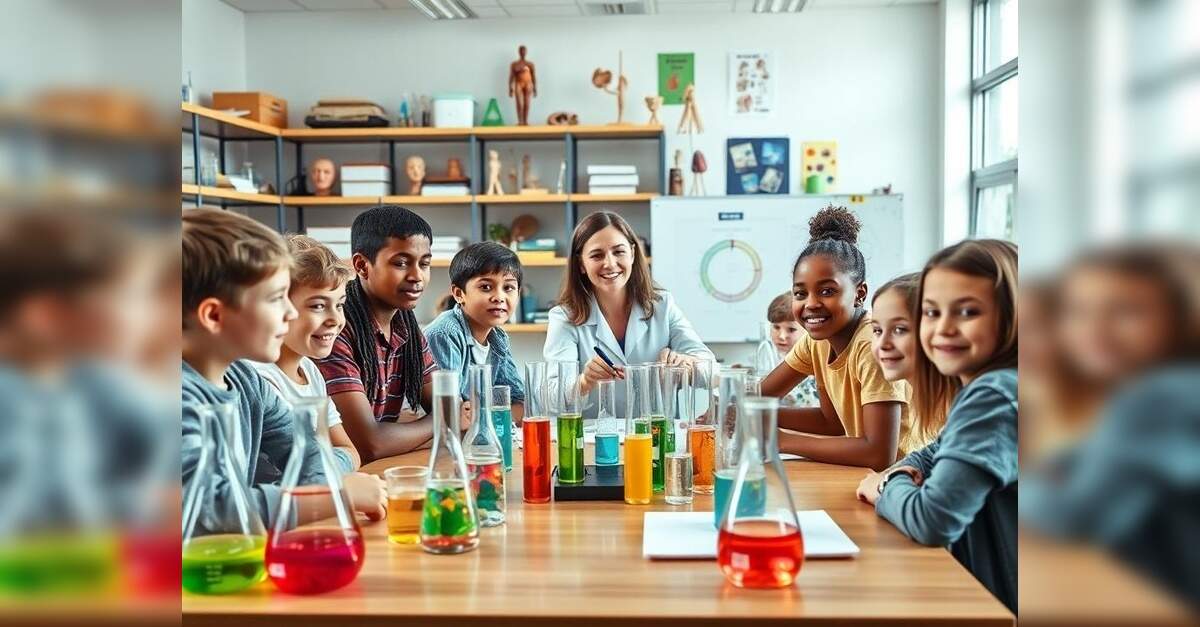
Revamping Education on National Education Day, ETEducation
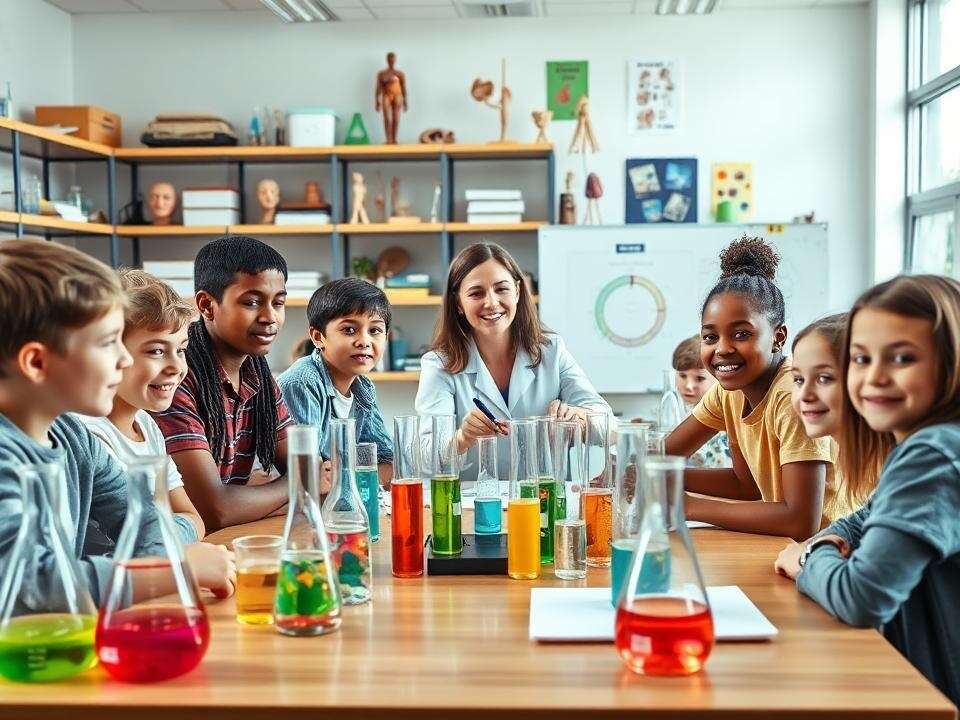
Authored by Anita Paul.
Maulana Abul Kalam Azad is always remembered on National Education Day as a visionary and the first Indian Minister of Education. He considered the coexistence of the mind and spirit to be the ultimate goal of genuine education. Academic Institutions celebrate the day by conducting events, speeches and discussions, and while this day is full of festivities, it has an important message, and that is a reminder to think about the real nature of education.
Is it just a matter of getting marks, ranks, and passing examinations or is it the awakening of curiosity, creativity, and the love for lifelong learning?
Revisiting the purpose of learning
With the evolving education system in modern times and never-ending pressure to excel, students grow up thinking their worth lies in scores and percentages. Moreover, when finishing the syllabus becomes the measure of success, it suppresses students’ inner curiosity. Instead of exploring and enjoying the journey of learning, they are driven to memorize and perform.
It is here that National Education Day calls for a change in this outlook: education is not the race to be at the top; education is the lifelong journey of discovery. When curiosity forms the base of learning, then students start asking “why” and “how” and not just “what.” And that is where true understanding begins.
Curiosity over competition
Curiosity stimulates the children’s imagination and thus the ability to think deeply and come up with new ideas to solve problems. On the other hand, competition set too high leads to anxiety which gradually turns into fear of failure: if students become only concerned with outdoing their peers, they lose the bliss of discovering the universe around them.
What begins as an incentive to learn and grow gradually turns into a burden over time. The true essence of education is often lost in the relentless race for marks and positions on merit lists. In this pursuit of numbers, curiosity gives way to fear, inquisitive minds are replaced by anxious ones, more focused on not losing than on discovering. The joy of learning fades as academic achievements become the sole measure of success.
The responsibility of the teacher, therefore, is to get the student to fall in love with the process; to make the knowledge so nice and never-ending. If education is based on curiosity then learning is no longer confined to textbooks because it becomes part of life.
A vision in tune with NEP 2020
This represents an evolving philosophy of education, which NEP 2020 has captured so well. The policy document has emphasized inquiry-based, experiential, and holistic learning and has called upon the students to connect classroom learning with real-life experiences.
It is progressive since it moves the student from rote and mere memorization to conceptual understanding. It will therefore encourage schools to create an environment of exploration, questioning, and creativity in children, whereby the teachers will help the children discover rather than deliver knowledge.
Schools now believe that learning should be meaningful and joyful and that curiosity should be nurtured and celebrated.
Empowering students through guided learning
A modern teacher’s role in the classroom is that of a guide and mentor for the children through the processes of learning, rather than an information proprietor. Making the classroom vibrant and creative means letting children question, experiment, and discuss anything.
The most effective learning settings are usually the result of educational environments making a gradual shift from “teaching answers” to “guiding inquiry.” Just imagine if curiosity is fired up when children are allowed to experiment instead of being simply told the results or the creativity that is released when a teacher asks the students to paraphrase the text in their own words. Such a procedure not only increases the students’ understanding but also strengthens their confidence as they realize that their viewpoints are important.
Classrooms that grow curiosity
We need to rethink the working of classrooms when we choose curiosity over competition: each question is valued, each idea welcomed, and each student is encouraged to explore. Most schools are part of the IB and Cambridge curricula, designed especially to make learning inquiry-based. Unlike CBSE or any other state board, international programs do not stress much on having exams; rather, they go for continuous assessment through assignment-based learning, project work, and research activities. Such courses enable students to apply the course material in real life.
Through practice, introspection, and discussion, students gain knowledge. The learning process involves doing, reflecting, and discussing since this style of learning develops independence, curiosity, and problem-solving abilities, all of which are essential for any form of success in the twenty-first century. Education educates students for life, not for tests, as it should be about comprehension rather than memorization.
Curiosity begins at home
When parents prioritise effort and curiosity over grades, the kids see no trouble and thus are free to explore and try new things. Very often, a very simple conversation, a question or a word of support is enough to wake up their creativity. When families encourage kids to read, ask questions, and express their views, they don’t just pass on knowledge; they create a genuine love of learning and self-assurance in the child.
National Education Day is a time for us to take stock of our progress and, above all, to identify our destination. This day is not only a tribute to the great visionary Maulana Azad but it is also a day for us to reaffirm our commitment to turning education into an endless process of wonder, curiosity, and growth. It is a reminder that the purpose of learning is not merely to fill the mind with facts but to illuminate it with imagination and inquiry.
Today, Institutions regard every student as a thinker, a dreamer, and an adventurer. In classrooms, the lead is taken by curiosity and followed by confidence, as the learning process is infinite here.
Inspiring minds to keep growing
Education is a lifetime journey, not a destination reached. Because when we advocate curiosity instead of competition, we provide students with the necessary tools to not only think, question, and grow but also be self-assured and empathetic human beings. Let this National Education Day remind every teacher, parent, and most importantly, every learner that education is not about being the best in class; it’s about being the best version of themselves. After all, curiosity doesn’t just build good students; it builds lifelong learners.
Source link

